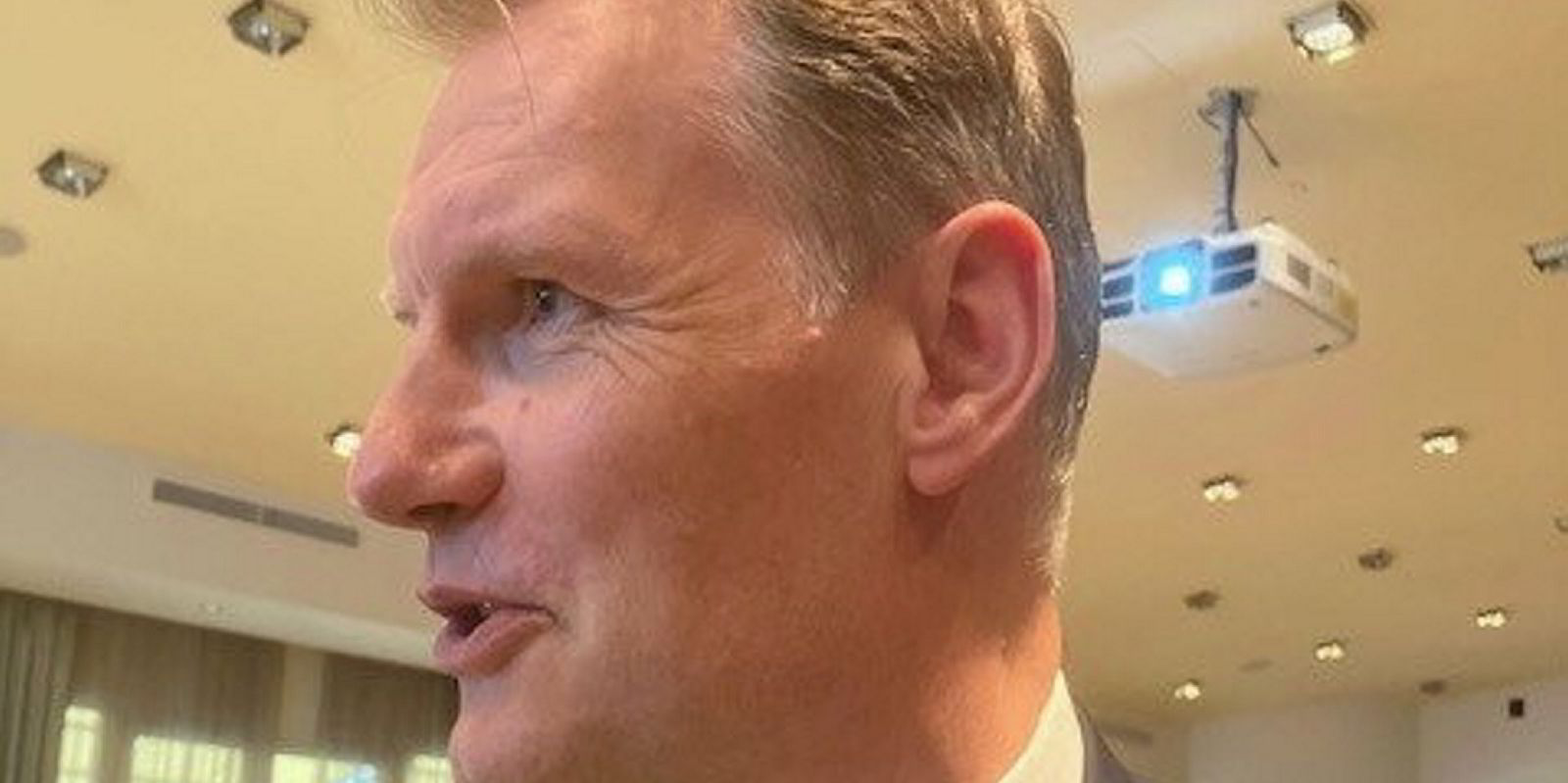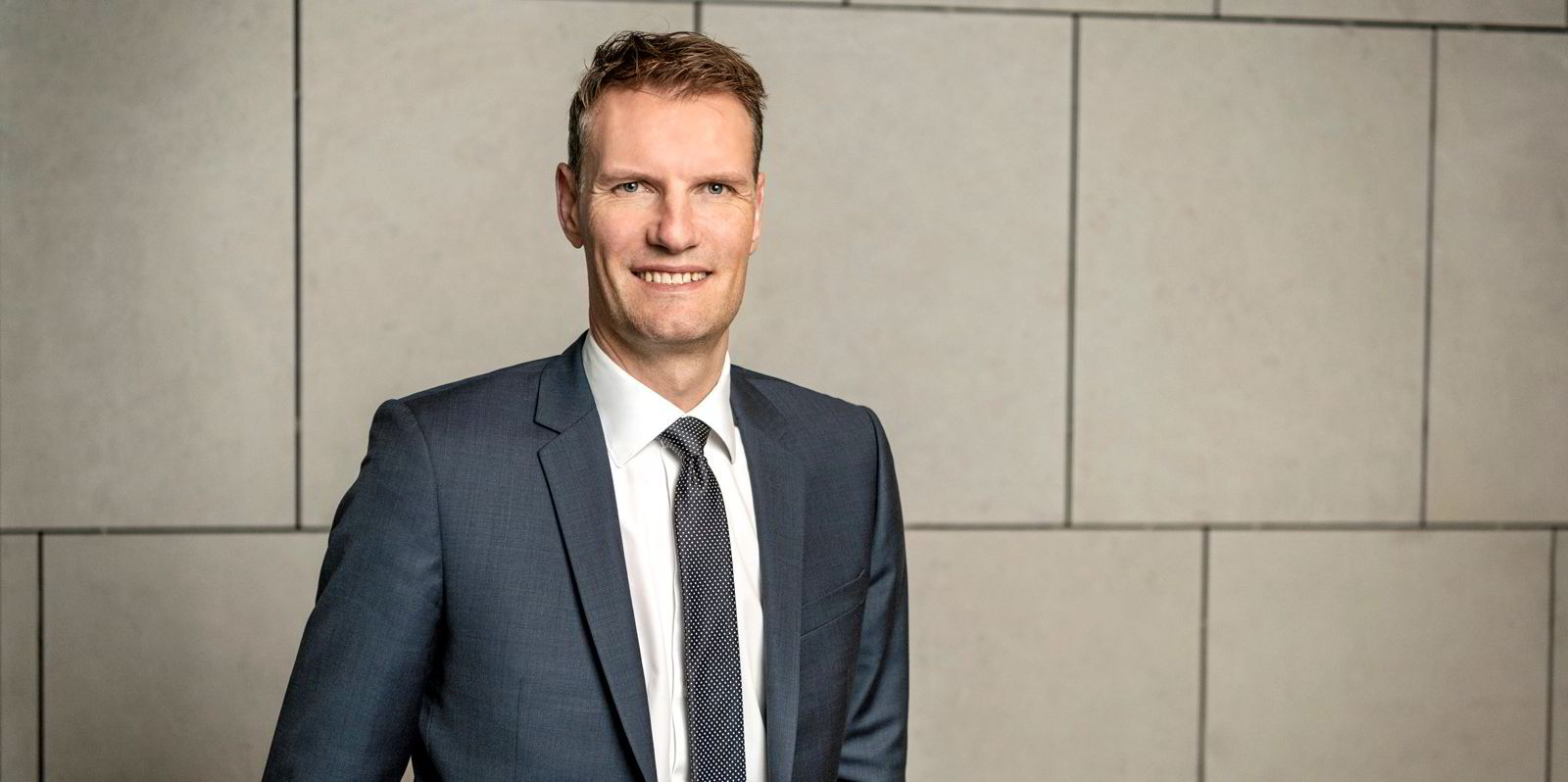MSC Mediterranean Shipping Company “will live with” the European Union’s Emissions Trading System, but shippers will have to pay higher costs, says chief executive Soren Toft.
“Regional regulation, we don’t think is the way forward for a global industry,” Toft told TradeWinds on the sidelines of an event held by the International Bunker Industry Association in Genoa, Italy, on Thursday.
“But of course, the regulation is passed — we will take it on board.”
Toft made the remarks after the European Parliament this week approved adding shipping to the Emissions Trading System in 2024.
“We have already notified initially our customers that there will be surcharges from this,” he said.
“Because we cannot bear these additional costs, we will have to pass this additional cost on.
“It may lead to further inflation in the EU region, which we don’t think is the right remedy.
“But that’s the way it is, and we will live with it.
Folding maritime into EU emissions trading will require shipowners and operators to buy carbon allowances for European voyages in 2024 and beyond.
Previous estimates by MSC suggest that the price of emission allowances, or EU Allowances (EUA), at €90 ($99) per tonne of CO2 would add €69 per teu to the cost on the Far East to North Europe for dry containers and €208 per 40-foot equivalent unit (feu) for reefer containers.
Tilt to methanol
Toft said his own company was pursuing several avenues to tackle decarbonisation.
“The biggest issue we have is the availability of fuels,” he said.
“We know that LNG is not the finite solution. But you can develop LNG also with biomethane and also, we hope, a synthetic LNG product will be available.
“At the same time, we are studying methanol and ammonia, and we believe that we will most likely retrofit ships into methanol.”
At this stage, he said methanol appeared to be the least complicated fuel with which to retrofit vessels.
He added that other options — even nuclear power — might one day be considered, “but we also know the political obstacles”.
“Before anything, we have to make sure that we get real collaboration,” he said. “I think it is a mistake if we’re going to compete on the green agenda. We should collaborate on the green agenda because we all need to collaborate on climate change.”
‘It’s about growth’
Toft also commented on MSC’s growth push, comprising a massive newbuilding programme and a historic secondhand spending spree.
He said that programme was about fleet renewal, competitiveness and costs.
“We bought a lot of secondhand ships because there was a significant demand out there from customers during the Covid period,” he said.
“We need to be sure we’re not just the biggest, but the most competitive.
“And it’s about replacing a number of chartered ships because the fact of the matter is we can actually operate the ships we operate ourselves better than the traditional chartered ships.”
Toft said the company was not worried about the massive fall in freight rates of recent months.
“We didn’t get carried away in the last couple of years,” he said. “We knew something of the fundamentals of shipping and that’s why we knew they would sooner or later return.
“That’s why we’re making sure with the acquisitions we have done that we are in a good place, we can meet the customers’ demands, and we can hopefully also generate some positive returns.
“And by investing in the fleet, we can make sure that we are as competitive as we possibly can, now that the market has rebalanced.”
Read more
- MSC resumes buying spree as container ship charter markets thin out
- Boom and burst: How the container bubble went ‘pop’
- MSC and Costamare reach settlement with insurers over California oil spill
- MSC facing fines in $1,000 congestion surcharge dispute
- Aponte bucks trend of suffering billionaires as fortune swells by $14.4bn




